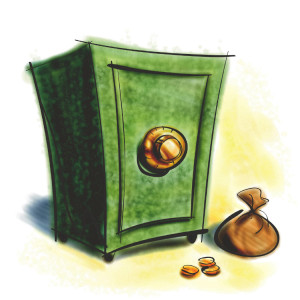
March Madness is upon us! This is the most exciting season for college basketball fans, and everyone is waiting with bated breath to see how their brackets will turn out (for some of us, our answer came disappointingly early).
March Madness involves picking the right people to carry out a common goal, and, in that sense, planning your estate can be viewed a lot like picking your bracket. You need to have the right people in the right positions to carry out the goal of distributing your assets fairly after you die.
The Different Spots to Fill
There are many different spots to fill when it comes to your estate plan. There are different documents, appointees, and other means by which you can control your asset distribution.
Here are a few of these positions that you need to consider filling.
- Beneficiaries are people you designate to receive your assets. You want your things to go to people you trust. Select beneficiaries who will be able to handle the assets you transfer to them. For example, the cryptocurrency Bitcoin has been making the headlines lately. It is a digital currency that is volatile, tradeable and an asset that only experienced people should handle. If you’re selecting a beneficiary to get your Bitcoin, you want to make sure that they are knowledgeable about the currency and able to handle it. Think this carefully about all your assets.
- If you create a living trust, you will have a trustor (you), trustee, and beneficiary. You, the trustor, transfer property to the trustee, who becomes the nominal owner until they grant the property to the beneficiary. They grant the property to the beneficiary at your instruction, whether it’s when the beneficiary reaches 18 or at some other point. Pick a trustee that you know will follow your instructions down to the letter.
- In an estate plan, you can also include instructions on who will be the guardian of your minor children. We don’t need to tell you how important it is to pick the right person—you already know. This is another reason why estate planning is so important. If you have kids, you need to make sure that you have peace of mind on what will happen to them if you die.
- Power of attorney. Your power of attorney makes financial decisions for you in the event you are too incapacitated to make them yourself. In your estate plan, you can choose who this important person will be. After you pick the person, you can work with them to ensure they know your wishes and how to carry them out if something happens.
- Healthcare directive. This isn’t necessarily a position so much as it is a set of instructions. A healthcare directive details what a hospital should do for your medical care if you’re too sick to voice your own wishes. This way, you get the care you desire when you need it most.
Much like your March Madness bracket, you need to make sure that the people you choose are able to make the cut. Pick individuals who are responsible and able to handle the duties you give them and follow your directions precisely.

